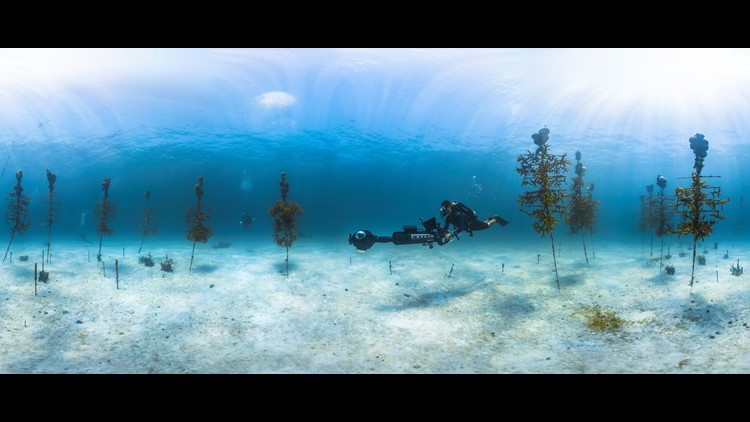BUFFALO, N.Y. — The National Oceanic and Atmospheric Administration (NOAA) Thursday unveiled a new, 10 year plan for further examination of acidification of the country's oceans, coastline and Great Lakes.
Acidification happens when carbon dioxide is absorbed by water, either directly or indirectly from the atmosphere. While that in itself is a natural process, acidification of the ocean and Great Lakes has been accelerated by man made pollution, which causes a harmful change in the chemistry of local water and ecosystems.
Acidification can have a harmful effect on water ecosystems and the industries they impact. The United States has a $110 billion fishing and shellfish industry that supports over 1 million jobs. These jobs could be at risk in the future if acidification isn't examined, monitored and mediated in the near future.
Kenric Osgood, chief of the Marine Ecosystems Division at NOAA Fiseries, stated, "Understanding how ocean acidification will affect marine life and the jobs and communities that depend on it is critical to a healthy ocean and blue economy."
So this 10 year research plan will examine the acidification of the country's oceans, coastline and Great Lakes through three objectives:
1. Expand and advance observing systems and technologies to improve the understanding of and ability to predict acidification trends
2. Understand the ways acidification is impacting ecologically and economically important species and the ecosystems they live in
3. Identify and engage stakeholders and partners, assess needs, and generate products and tools that support management decisions, adaptation, and resilience to acidification
This new plan comes after a decade's worth of research into acidification by NOAA scientists and the important discoveries made that has already helped the fishery industry. In particular, more emphasis is expected to be put on the Great Lakes, as they are the world's largest freshwater ecosystems.



